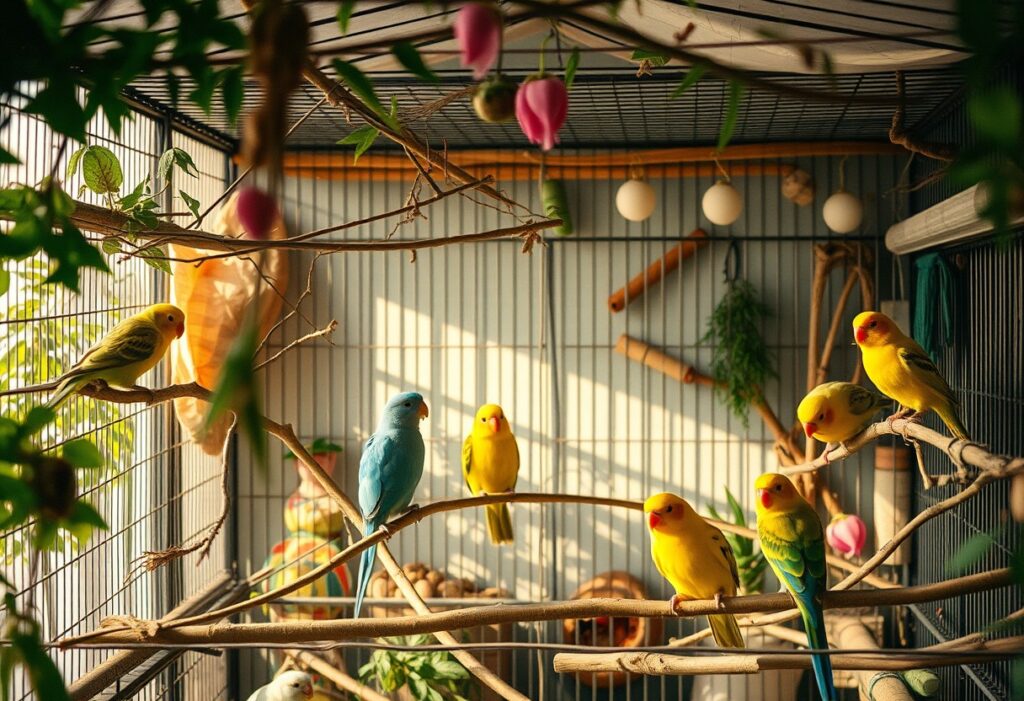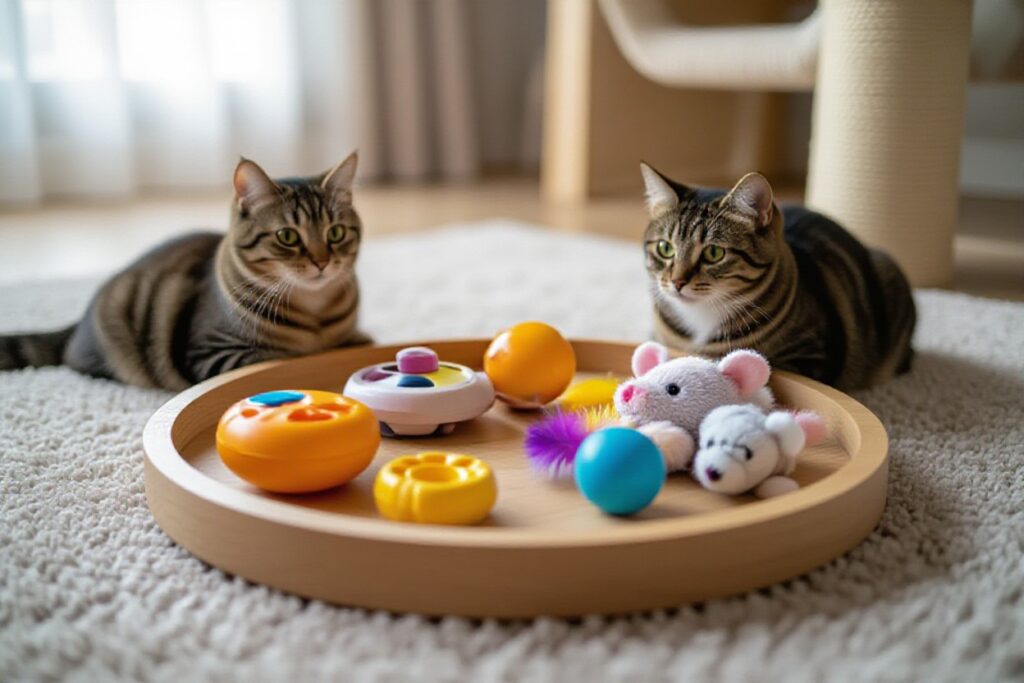Many bird owners struggle with keeping their feathered friends happy and healthy in a captive environment. To promote natural behaviors, you need to provide an enriching habitat that mimics their wild surroundings. This involves incorporating various activities and elements, such as appropriate toys, social interactions, and proper diet, that will stimulate your bird’s mental and physical well-being. By encouraging these behaviors, you can ensure your pet leads a more fulfilling life, reducing the risk of stress and behavioral issues commonly seen in captive birds.
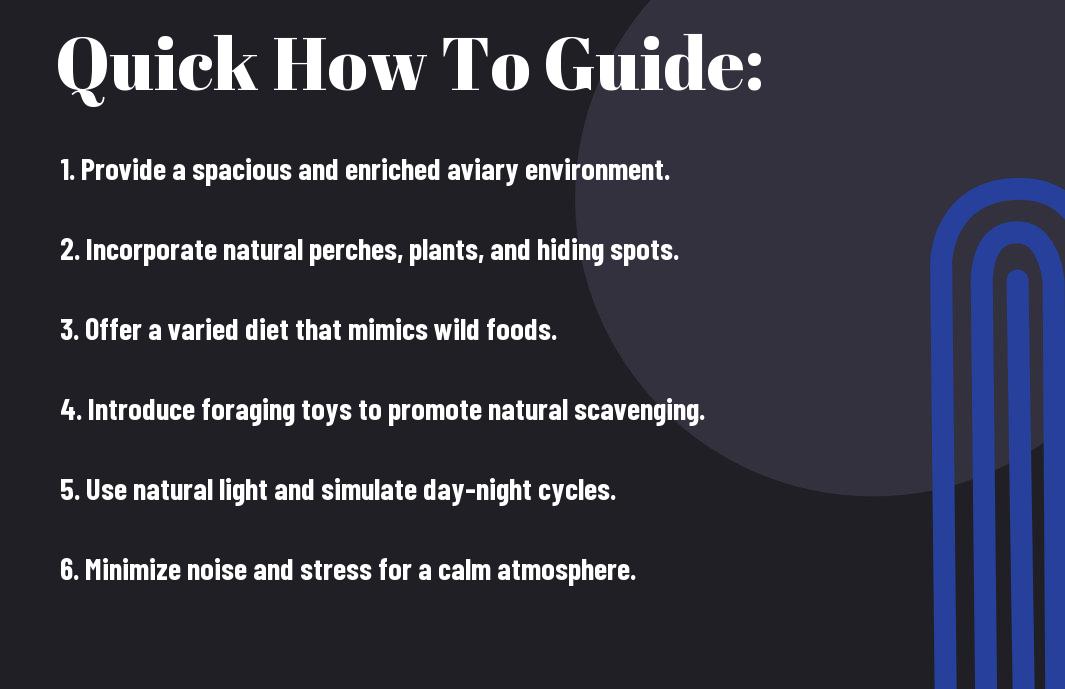
Understanding Natural Behaviors
While caring for birds in a captive environment, it’s necessary to recognize the significance of nurturing their natural behaviors. These behaviors are the instinctual actions and reactions that birds exhibit in the wild, shaped by millions of years of evolution. Understanding these behaviors can help you create an enriching environment that allows your birds to engage in activities that promote their well-being. This knowledge is crucial, as it enables you to provide the right stimuli for your feathered companions, showcasing your commitment to their happiness and health.
What Are Natural Behaviors?
Now, natural behaviors in birds encompass a wide range of activities, including foraging, social interaction, nesting, and vocalization. These behaviors are not just habits; they are necessary for your bird’s mental and physical health. For instance, in the wild, birds spend much of their day foraging for food, flying long distances, and interacting with their flock. When these behaviors are limited or absent in captivity, it can lead to stress, anxiety, and even harmful behaviors such as feather plucking or excessive screaming.
Importance of Natural Behaviors in Captive Birds
For your captive birds, replicating natural behaviors is critical to their overall well-being. Engaging in activities that mimic their wild instincts helps fulfill their psychological and physical needs, reducing stress and promoting a healthier lifestyle. By understanding the necessary natural behaviors of your birds, you can create an environment that allows for play, exploration, and social interaction, which are vital for their emotional satisfaction.
Natural behaviors not only contribute to physical health but also foster mental stimulation and social bonding. When you provide opportunities for your birds to exhibit these behaviors, you help minimize the risk of behavioral problems and promote a happier, healthier pet. Cultivating an environment that encourages natural behaviors is not just an act of kindness; it’s a fundamental aspect of responsible bird ownership that ensures your avian companions thrive in captivity.
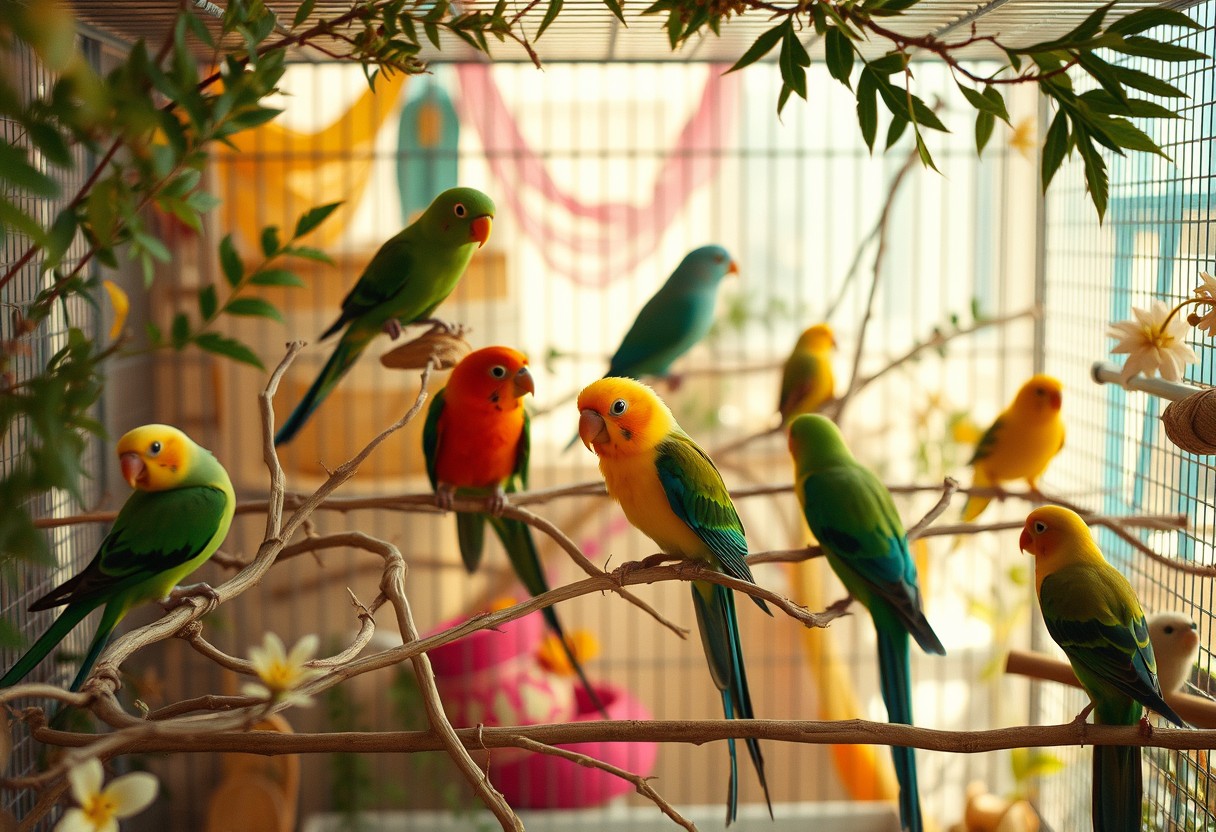
Factors Influencing Behavior
Even in a captive setting, various factors play a crucial role in shaping the behavior of your pet birds. Understanding these influences is necessary for promoting their wellbeing and encouraging their natural behaviors. Several elements come into play, including:
- Environmental Enrichment
- Social Structure and Companionship
- Nutrition and Diet
Perceiving these factors and how they interconnect can help you create a more fulfilled life for your birds.
Environmental Enrichment
Little thought is often given to the physical environment of captive birds, yet it is one of the most significant factors affecting their behavior. A monotonous habitat can lead to stress, feather plucking, or other behavioral issues. Providing a variety of perches, toys, and materials for foraging can mimic their natural habitat and encourage instinctual behaviors. You should regularly change the layout of the enclosure or introduce new items to keep your birds mentally stimulated.
Additionally, incorporating natural elements—like branches, leaves, and even small water features—can enhance the environmental complexity, promoting exploration and play. This, along with opportunities for climbing and flying, is necessary for your birds to express their natural behaviors and reduce boredom.
Social Structure and Companionship
You may not realize how vital social interactions are for birds. In the wild, many species live in flocks and rely on social bonds for survival. When kept in isolation or without proper companionship, your birds may display signs of stress and other behavioral problems. It is necessary to consider the social needs of your birds; this could mean adopting multiple birds or providing ample interaction time with you as their owner.
Furthermore, compatible companionship within a flock can foster healthy relationships and reduce aggression or other negative behaviors. Be aware of the species of birds you have, as some may be more social than others and may require different levels of interaction.
To create a social environment, consider arranging playdates or allowing communal time if you have multiple birds. This helps them establish their own hierarchies and social bonds, which are vital for their emotional health.
Nutrition and Diet
Behavior plays a significant role in the health and happiness of your birds. A well-balanced diet contributes greatly to their overall wellbeing and can influence their mood and activity levels. Providing a varied diet that includes pellets, fresh fruits, vegetables, and occasional seeds ensures they receive necessary nutrients. Foods rich in vitamins A, D, and calcium are especially crucial for their metabolism and immune health.
Moreover, consider incorporating foraging opportunities into your bird’s diet. Hiding small treats within their environment promotes natural foraging behaviors, stimulating both their mind and body. It’s a good practice to observe your bird’s eating habits, as it can reveal underlying issues. If your bird seems disinterested in food, it may indicate a health problem or insufficient dietary variety.
This understanding of nutrition is necessary in maintaining not only physical health but also mental stimulation and emotional stability. Adjusting their diet as needed can have a profound impact on their behavior.
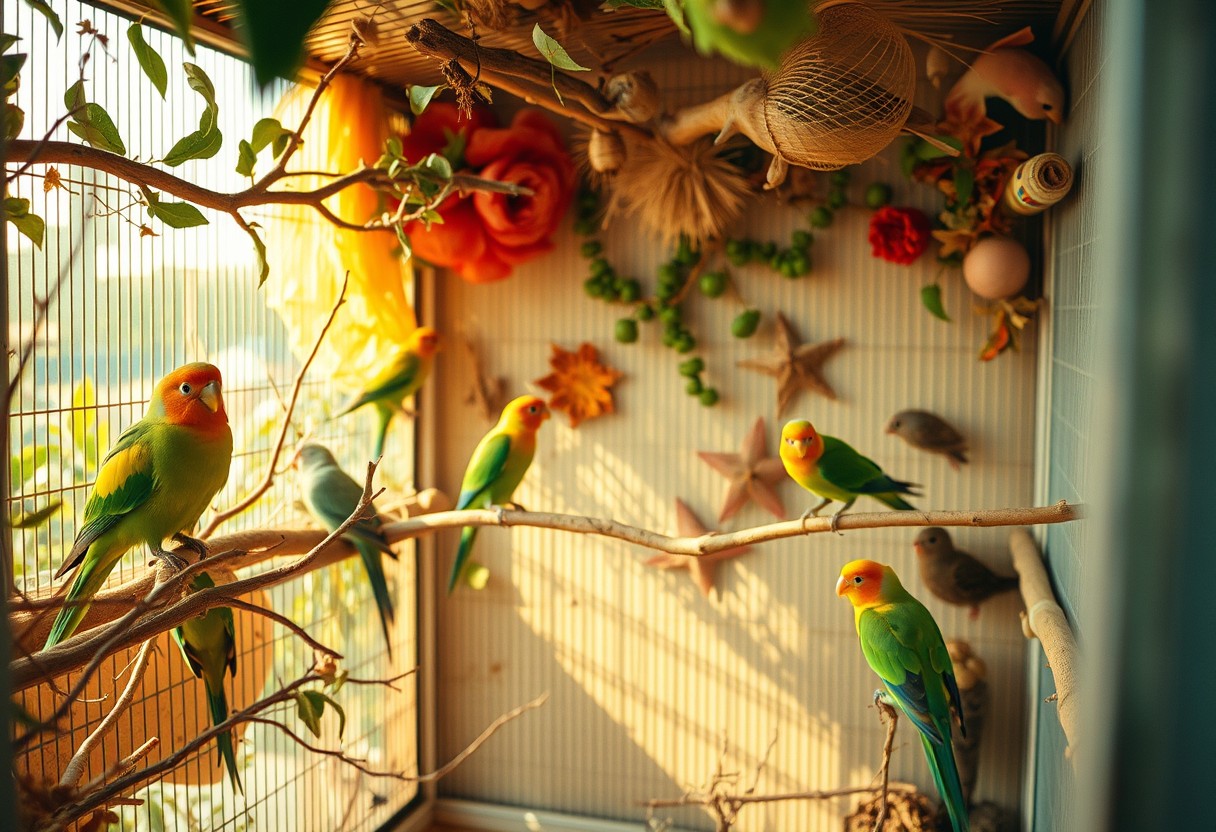
Tips for Encouraging Natural Behaviors
After understanding the importance of encouraging natural behaviors in captive birds, you can begin implementing effective strategies. These tips are designed to help you create an environment that mimics the birds’ natural habitats and social structures, fostering wellbeing and joy in your feathered companions. Here are some important recommendations:
- Provide a spacious and varied enclosure that allows for exploration.
- Incorporate different types of perches and structures to encourage climbing and flying.
- Introduce natural materials such as branches, leaves, and twigs.
- Offer a variety of foods to encourage foraging behaviors.
- Develop a routine to enhance predictability and reduce stress.
Creating a Stimulating Environment
Little things can make a big difference in creating a stimulating environment for your birds. Enrich their space with various textures, shapes, and colors that will encourage their natural curiosity and instinct to explore. Providing a mix of perches, ropes, and toys not only adds physical variety but also fosters mental stimulation as they interact with their surroundings.
Additionally, you can incorporate natural sunlight whenever possible, as this is important for your birds’ health and wellbeing. A window that allows for natural light can create a brighter atmosphere, making your birds more active and alert. Also, consider adding safe plants that are non-toxic to birds, as these can simulate their natural environment and provide a habitat similar to their wild counterparts.
Interactive Play and Toys
For birds, interactive play and stimulating toys are fundamental for promoting natural behaviors. Regularly introduce new toys, such as puzzle feeders and foraging toys, to keep their environment exciting. The act of shredding, pecking, and exploring is not only enjoyable but also reflects the behaviors they would exhibit in the wild.
Behaviors such as tossing, hanging, or manipulating toys can significantly enhance their physical and mental health. Make sure that you rotate their toys frequently and observe their interests; this way, you can provide what they are most enthusiastic about, ensuring that your birds remain engaged and stimulated.
Sociability and Flock Dynamics
Flock behavior is a crucial aspect of a bird’s identity, and providing opportunities for sociability among your birds will lead to enhanced emotional well-being. If you have multiple birds, allow them to socialize, as this mimics their natural flock dynamics in the wild. Birds are highly social creatures by nature, and interactions with one another can reinforce their instinctual behaviors.
To facilitate a harmonious environment, determine the species compatibility of your birds and observe their interactions closely. Provide multiple sources of food and perches to reduce competition and allow them to establish their own social hierarchies within your home. The result will not only enhance their social connection but will also promote a sense of security and stability among them.
Natural Foraging Practices
The inclination to forage is a fundamental instinct in birds. To encourage this natural behavior, you can create foraging challenges that stimulate their problem-solving skills. Hide food in various places around their enclosure or use foraging toys that require them to work for their treats. Such practices not only mimic their search for food in the wild but also keep them engaged and mentally alert.
Natural foraging allows birds to experience a sense of accomplishment and reduces boredom. You can further enhance this by varying the types of foods you hide, from seeds to fruits and vegetables, keeping their diet enriching and exciting. This diversity will help prevent behavioral issues that may arise from monotony.
Natural foraging practices are vital for your birds’ mental and physical health. By implementing these activities, you create a fulfilling environment that aligns with their instinctual behaviors and promotes a happy, healthy life. Knowing how to effectively support your birds in these ways will deepen your bond and enhance their overall wellbeing.
To wrap up
To wrap up, encouraging natural behaviors in captive birds is important for their mental and physical well-being. By providing an enriched environment filled with appropriate perches, hiding spots, and foraging opportunities, you can mimic their natural habitats and promote instinctual behaviors like exploring, socializing, and nesting. You should also regularly rotate toys and introduce new stimuli to keep your bird engaged and active. Understanding the specific needs and behaviors of your bird species will allow you to tailor your approach, ensuring that your feathered friend flourishes in captivity.
Furthermore, fostering social interaction is crucial. Spend time talking to and playing with your bird to strengthen your bond while also allowing for positive socialization experiences. If feasible, consider housing your bird with compatible companions to encourage social interactions that reflect their wild counterparts. Ultimately, by prioritizing your bird’s natural instincts and providing a stimulating environment, you can enhance their quality of life, making captivity a more fulfilling experience for your avian companion.
FAQ
Q: What are some natural behaviors I can encourage in my captive bird?
A: To encourage natural behaviors in captive birds, it’s important to replicate their natural habitat as closely as possible. This includes providing various perches at different heights, that mimic trees, and allowing space for flight. Additionally, you can introduce toys that require problem-solving or foraging, such as puzzle feeders or items that can be manipulated. Incorporating natural elements like branches, leaves, and safe plants can also stimulate natural curiosity and exploration. Lastly, social interaction with other birds or humans can help mass social engagement, mimicking their flocking behavior.
Q: How important is environmental enrichment for captive birds?
A: Environmental enrichment is crucial for the psychological and physical well-being of captive birds. It helps to prevent boredom, which can lead to destructive or harmful behaviors such as feather plucking or aggression. By providing varied stimuli, like different textures, sounds, and activities, birds can engage in natural behaviors such as foraging, climbing, and exploring. Enrichment can include rotating toys, creating foraging opportunities, introducing new safe materials regularly, and even playing sounds of their natural habitats. All of these efforts contribute to a happier and healthier bird.
Q: Can I encourage breeding behaviors in my captive birds? If so, how?
A: Yes, it is possible to encourage breeding behaviors in captive birds, but it requires careful consideration. Creating a suitable breeding environment is necessary; this may include providing nesting materials, privacy, and the right diet to foster hormonal changes. Additionally, observing their natural social structures and creating appropriate pair bonds can promote breeding behaviors. However, it is important to do thorough research on the specific requirements and behaviors of the species you are working with to ensure you meet their needs appropriately without causing stress or overwhelming them.
